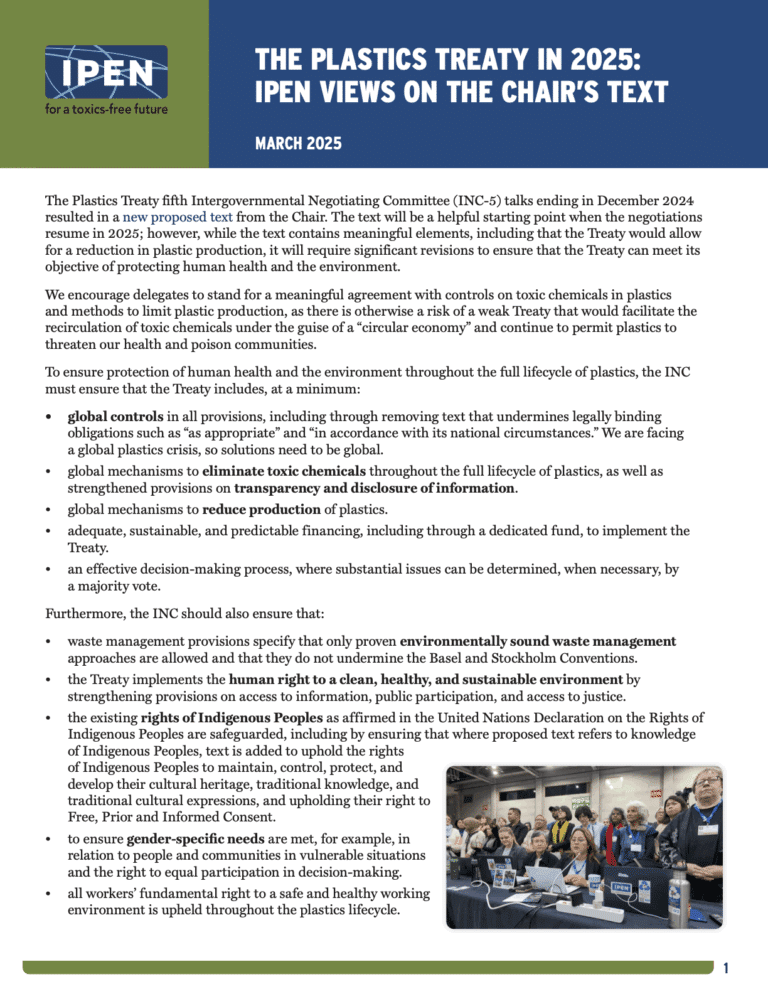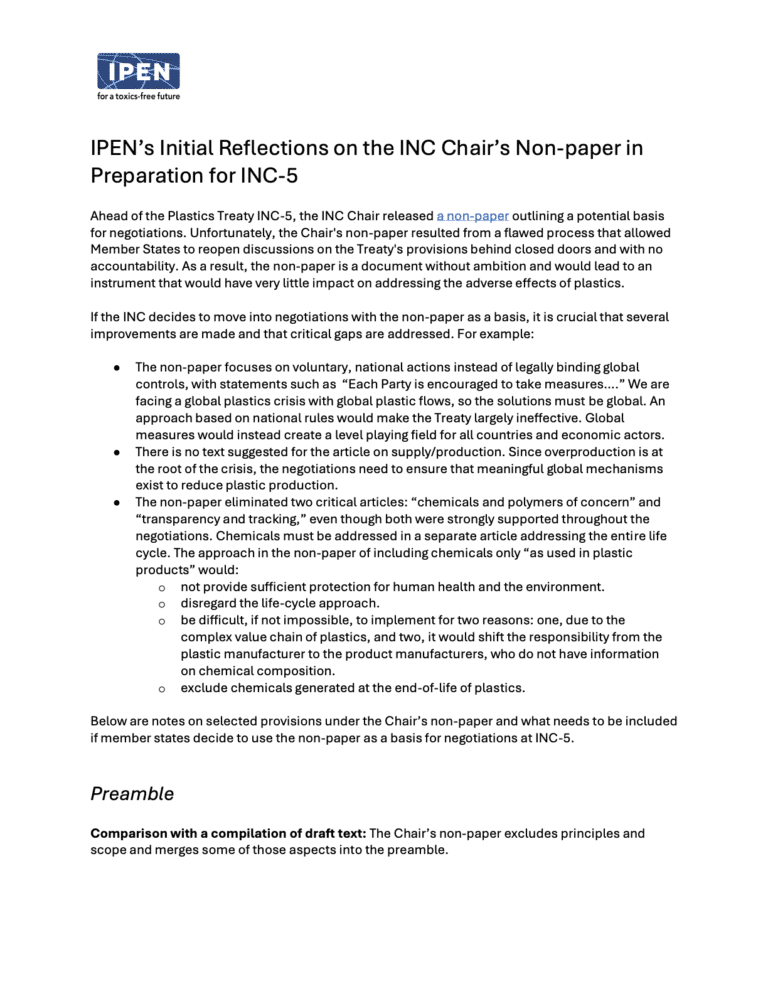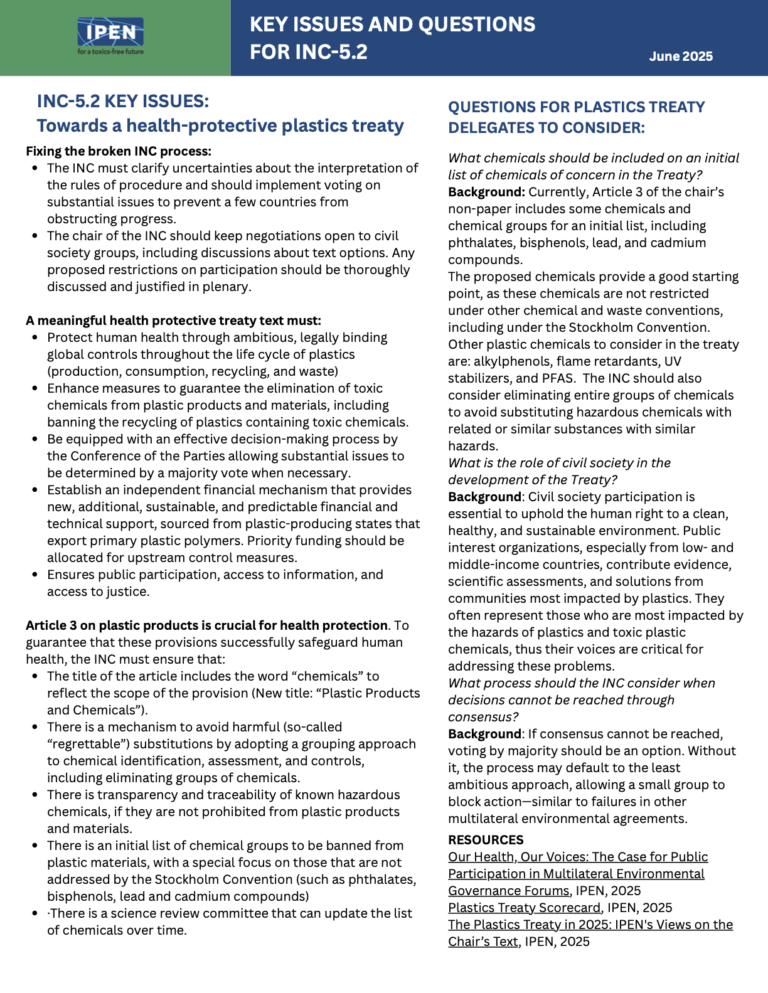Paris 29 May - 2 June, 2023
The second meeting of the Intergovernmental Negotiating Committee (INC2) of the Plastics Treaty took place from 29 May – 2 June 2023 in Paris, France.
See IPEN’s summary of what happened at the INC2.
Plastics Treaty Resources
The Plastic Treaty negotiations are scheduled to continue through 2024, with regular sessions of the Intergovernmental Negotiating Committee (INC).
For each negotiating session, IPEN develops policy documents on the meeting agenda and emerging issues, as well as briefing papers, reports, and other materials.
Our Quick Views and some other materials are available in several languages.
Plastics Treaty INC-2
IPEN Interventions
IPEN participates throughout the Plastics Treaty talks, including by offering our views to the plenary of delegates.
Click on the video to see our interventions from the INC-2 talks.
INC-2 Side Events
IPEN co-organized a side event at the Plastics Treaty INC-2 on “Plastic pollution, toxicity, chemicals, and potential risks to human health” featuring Therese Karlsson, IPEN Science Advisor, and former IPEN Co-Chair Olga Speranskaya,.
IPEN member Mr. Indika Rajapaksha, Environment Officer, Centre for Environmental Justice of Sri Lanka presented on a panel on “Oceans and the marine environment.”
Images from INC-2





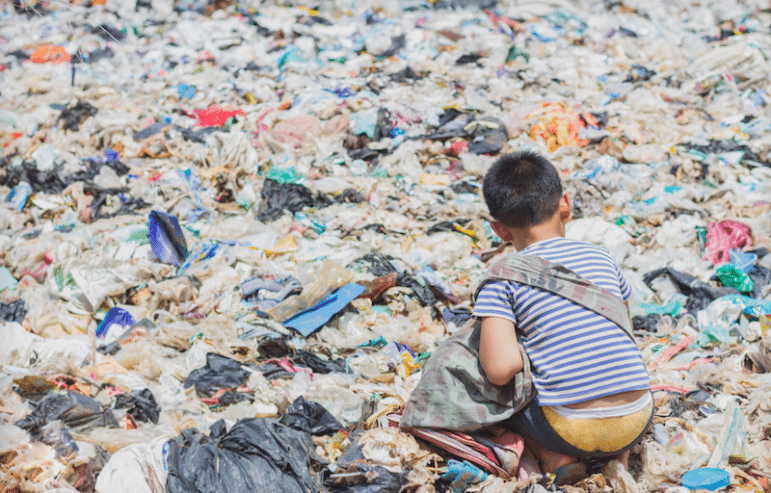
Troubling Toxics: Eliminating Harmful Plastic Chemicals Through the Plastics Treaty
The IPEN briefing Troubling Toxics discusses approaches in the Plastics Treaty to establish criteria for a negative list of toxic chemicals associated with the production, use, and disposal of plastics. IPEN calls for a strategy that combines a negative list of toxic chemicals to eliminate from plastics with an approach that prohibits marketing chemicals when there is no available toxicity data.
Health Threats from Plastic Recycling
A new report from Greenpeace USA, in collaboration with IPEN and The Last Beach Cleanup, shows that recycling actually increases the toxicity of plastics and highlights the threats that recycled plastics pose to the health of consumers, frontline communities, and workers in the recycling sector. Along with previous research showing that very little plastic reaches recycling facilities, the report concludes that the upcoming global Plastics Treaty negotiations in Paris must focus on capping and then phasing down plastic production.

Plastic Recycling is Recyling Toxic Chemicals
IPEN is concerned about the health and environmental threats throughout the plastic recycling stream. Studies from IPEN and others have shown that plastic recycling poses health threats to consumers, waste and recycling workers, and communities.
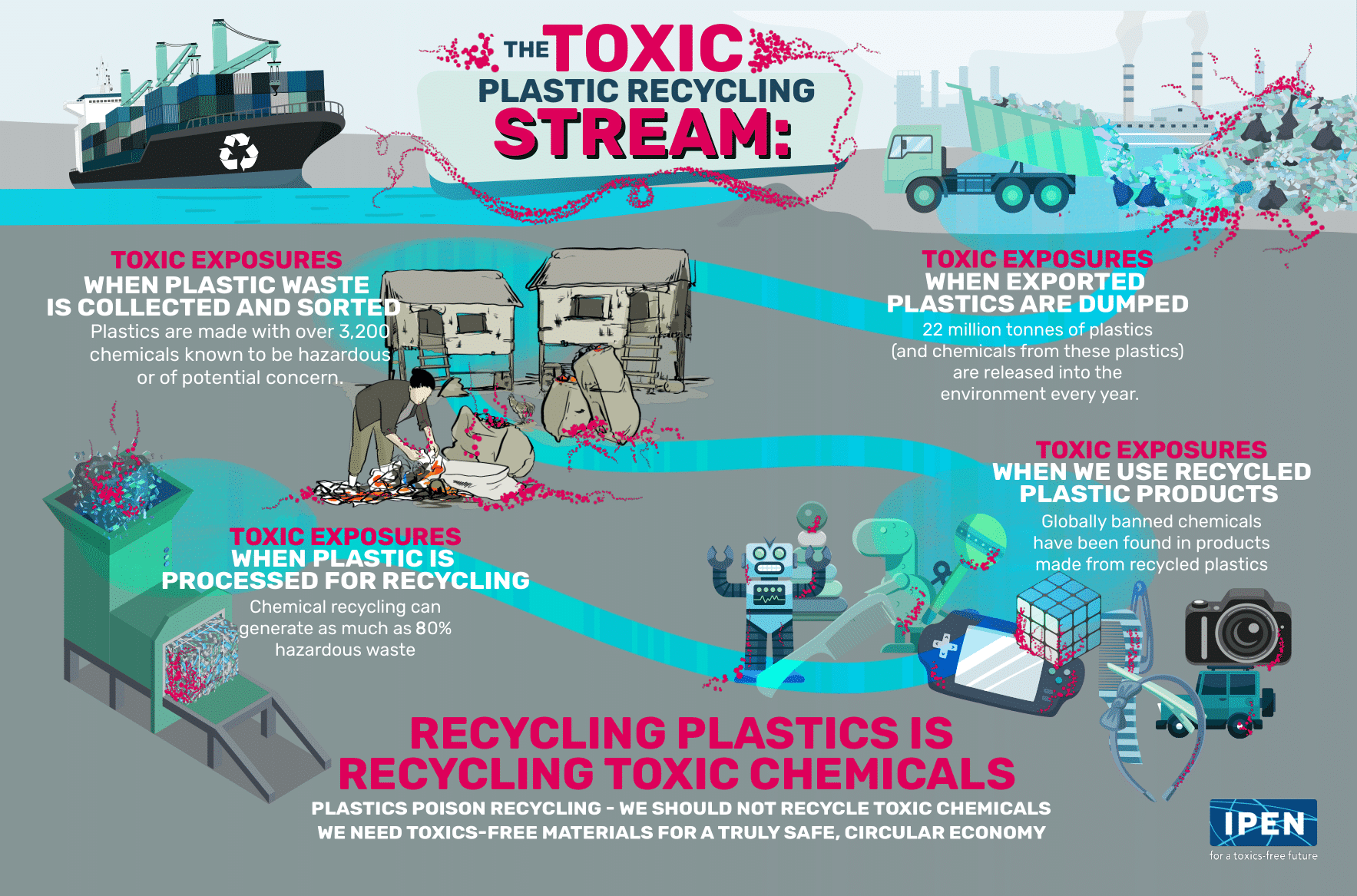
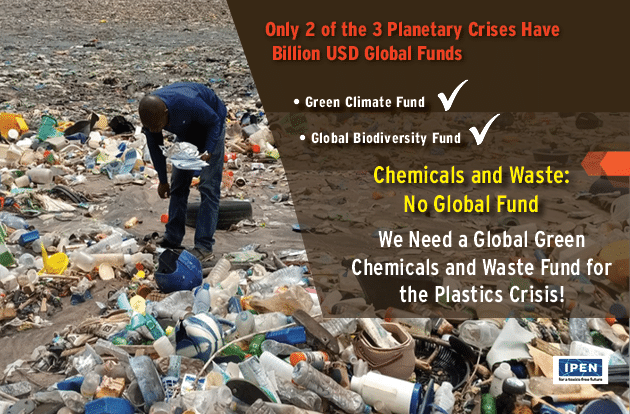
No Funds for the Plastics Crisis
Three planetary crises have been identified, but global funds have been established for only two. IPEN is calling for a Global Green Chemicals and Waste Fund to address the toxic impacts from chemicals in plastics and plastic waste.
